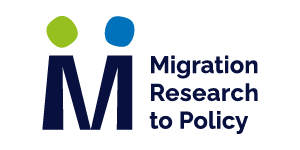Events

Building effective engagement between research, policy and practice: a strategic approach to impactful migration research in the world of policy
Tue 11 Mar 2025 09.00 - 19.00
Theatre - Badia Fiesolana
There is no lack of scientific evidence or information about migration. In fact, the EU and other organisations have invested heavily in enhancing the evidence base. However, several gaps between research and policymaking remain. Often, research outcomes are sidelined, not fully considered, or misunderstood due to communication gaps, political pressures, or misalignment with real-world needs.
This two-day executive training will develop and strengthen participants’ skills in effective research to policy engagement around migration Run by the Horizon Europe-funded INNOVATE project’s Migration to Research Policy Co-Lab, this flagship training will help participants know how to identify factors that help build strong connections and collaboration with research users and effectively disseminate and communicate research findings and outcomes.
By focusing on the unique challenges of engaging with non-academic stakeholders, this training will empower participants to maximise the impact of their work.
The training is not only designed for scholars, but also journalists, communication professionals, experts working for think tanks and consultants working on migration.
The two-days course will combine the practical experiences and perspectives of academic researchers with the experience of policymakers and advisors working for governments and civil society organisations. Participants will work together to identify and understand some of the key challenges and good engagement practices between research, policies, and practices.
Learning outcomes: By the end of this training participants will be able to:
- Effectively engage with the users of research about research evidence:
- Construct engagement strategies that facilitate enhanced use of reserve evidence;
- Understand and incorporate insights from both researchers and policy-makers to understand underlying factors that can influence effective engagement;
- Comprehend the role of research evidence in migration debates, limits to the use of evidence and factors that can mitigate or overcome these limits.
Learning methods:
- Knowledge transfer sessions led by academics, policymakers and other research producers/users (such as NGOs and CSOs) with significant experience in the field;
- Active exchange in interactive training sessions and group work activities that are focused on the interpretation of examples of engagement between evidence, policy and practices and that address the main challenges posed by the current migration debate;
- Case studies analysis based on real-life engagement.
Who should attend:
- Researchers working in a variety of settings such as academic institutions, think tanks, regional/international organisations;
- Consultants working on migration;
- Journalists and communication professionals who want to learn more about engagement with research evidence.
A Master’s degree in a relevant subject (social science disciplines, migration studies or similar) and/or relevant professional experience is required. Places are limited, and if a selection process is required, then these criteria related to professional background and experience will be applied
Information for applicants:
- The training course will take place in person on the premises of the European University Institute (EUI) in Florence, Italy, on 10 and 11 March 2025.
- Participants will be expected to be present on our campus in Florence, Italy, on the days of the training; The programme will include approximately 12-14 hours of in-session training.
- There is no fee to attend the training. The lunches and coffee breaks during the training, will be provided at the EUI at no cost to participants.
- Participants will need to cover the costs of travel and accommodation. Our events team can offer recommendations on accommodation in the city.
- Participants will be enrolled in our Virtual Learning Environment (Brightspace) to access course materials.
- Some pre-training readings will be required.
Speakers
- Stephanie Acker (Migration Policy Centre (MPC) of the EUI’s Robert Schuman Centre)
- Eleonora Milazzo (European University Institute)
- Jean-Louis de Brouwer
- Andrew Geddes (Migration Policy Centre, Robert Schuman Centre for Advanced Studies, EUI)
- Beth Ginsburg (Migration Policy Centre at the EUI’s Robert Schuman Centre)


